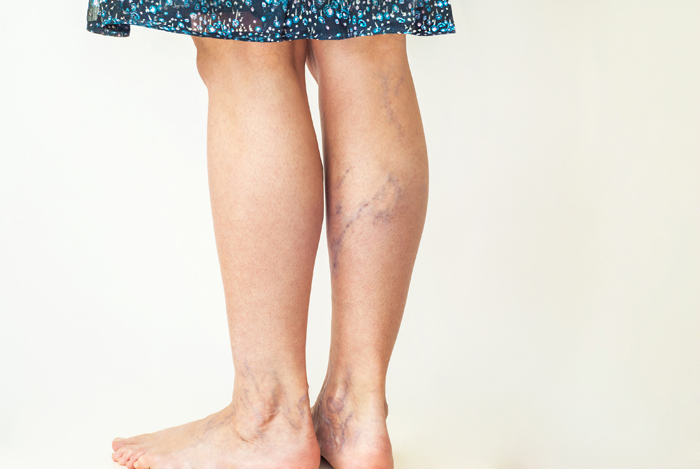Vascular Surgery
Before we begin, let us have a basic understanding of the vascular system of the human body. The vascular or circulatory system has a bundle of different types of vessels performing essential functions for you. But how? Circulation of nutrients, oxygen, and hormones and sending your waste for excretory purposes are the primary functions of the vascular system. It is composed of arteries, veins, capillaries and lymph.
A disorder or malfunctioning of the vascular system can call for diagnosis, comprehensive treatment, and management. A vascular surgeon treats issues in your circulatory system.
There are several vascular surgery hospitals in Jaipur offering comprehensive care. You can also search for the best vascular surgeon near you.

What do we need to know about vascular surgery?
A vascular surgeon primarily performs vascular surgery. General and trauma surgeons can also perform vascular surgery. They are specialists who are highly trained in treating vascular diseases, sometimes with only medications and disease management. Vascular surgeons are capable of performing minimally invasive as well as complicated and open surgeries. Vascular surgery deals with every vein and artery of your body except the brain and heart.
To learn more, you can visit vascular surgery hospitals in Rajasthan.
Who qualifies for vascular surgery?
According to protocols, if your primary care physician detects an issue in the vascular system, he/she will refer you to a vascular surgeon. Here are some cases that qualify for vascular surgeon consultation:
Continuous pain in the leg might indicate peripheral heart disease or may turn out to be just normal pain. A vascular surgeon will need imaging reports (X-rays/CT/MRI) for accurate diagnosis.
If you have diabetes, hypertension (high blood pressure), or have a regular smoking habit.
Any registered and qualified vascular surgeon in Jaipur can help you with the procedure and ease your discomfort.
Request an appointment at Apollo Spectra Hospitals, Jaipur, Rajasthan.
Call 18605002244 to book an appointment.
Why do you need vascular surgery?
Several conditions of the vascular system require vascular surgery. They are:
- DVT - Deep Vein Thrombosis
Most commonly occurring in the legs, it results from thickening and clumping of blood to form a solid mass. The condition requires prompt medical care as the clot might travel to your lungs and cause breathing difficulties or death in critical cases. - AAA - Abdominal Aortic Aneurysm
Aneurysms can occur anywhere in your body due to balloon-like dilation of vessels. It is commonly seen in the abdominal aorta, where the aorta is the largest artery of the human body. - Carotid Artery Disease
One of the most important arteries of the neck can suffer from a disease due to plaque accumulation. It supplies to your brain, and plaque build-up can cause narrowing. Moreover, clots, if they travel to the brain, can cause strokes. - Varicose Veins
It is the bulging of veins in the legs. Pregnant women, women with multiple childbirths, and obese individuals are at a higher risk. You must seek further consultation from a varicose veins specialist in Jaipur regarding your condition.
Other conditions like atherosclerosis, peripheral heart diseases, spider veins, vascular trauma, portal hypertension, and so on, also need consultations with vascular surgeons.
What are the benefits of vascular surgery?
The primary benefit of any treatment is to provide relief from the uneasiness caused by a disease. A vascular surgeon will provide thorough treatment for your vascular condition. The key benefits are:
- It prevents the risk of developing heart attack, stroke, or kidney diseases.
- It ensures an efficient blood flow for enhanced delivery of oxygen and nutrients to cells.
- After aneurysm treatment, it will reduce the risk of lethal internal bleeding.
What are the complications?
Potential complications of vascular surgery are:
- Hypersensitivity and allergic reaction to anaesthesia
- Internal bleeding and clots
- Pulmonary embolism due to lodging of lump in lungs
- Irregular heart rhythm
You will receive clear instructions from the doctor for preparation. It may include:
- Overnight (8 hours) fasting before the procedure
- Stopping some medications, like aspirin, blood thinners, etc.
- Avoiding shaving or waxing the surgical site, like legs or abdomen
They will keep you admitted to the hospital for five to ten days for complete rest. At least three months are needed to recover at home with consistent follow-ups and imaging tests.
Do not hesitate to contact your doctor if you experience:
- Any bleeding and spotting from the site of surgery
- High fever, loss of appetite, and chills
- Unsettling pain
Our Top Specialities
NOTICE BOARD
CONTACT US
CONTACT US
 Book Appointment
Book Appointment


.svg)
.svg)
.svg)
.svg)








